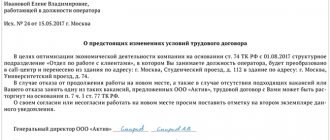QUALIFICATION OF ELECTRONIC CORRESPONDENCE
Electronic messages and electronic documents are transmitted through various communication channels, mainly via the Internet. Participants in civil transactions actively use electronic correspondence to confirm significant legal facts. We are talking about electronic messages and documents created and transmitted by email using:
- cloud platforms;
- online services created for collaboration and video conferencing;
- messenger programs used for personal correspondence or corporate chats.
This is evidenced by the number of legal proceedings in which parties rely on emails and messages.
Because business involves many risks, any electronic communication transmitted should be considered potential evidence. This means that the creation, transmission and storage of information electronically must identify the parties and their legal relationships.
It should be noted that messages transmitted using the Internet are “non-traditional” evidence and are assessed by the courts in their entirety and in relation to other evidence.
Any information obtained using the Internet and presented on paper (screenshots of pages, printouts of various databases, printouts of electronic documents, etc.) is added by the courts to the case file as written evidence.
It is important that the information reflected in electronic messages is accessible to human perception and is relevant to the case.
Like any evidence, electronic communications must meet the criteria of admissibility and relevance. How does this manifest itself in practice? It is necessary to confirm the involvement of the parties in the created and sent messages (a sign of admissibility), and also to make sure that the content and meaning of the message make it possible to establish disputed facts (a sign of relevance).
Correspondence that does not allow us to establish any circumstances significant to the case is not considered adequate evidence:
- phone numbers from which they were sent;
- email addresses from which the disputed correspondence took place;
- account in instant messengers/cloud platforms;
- their belonging to the plaintiff and defendant;
- the relevance of messages to the disputed relations of the parties (Articles 65, 67, 71 of the Arbitration Procedure Code of the Russian Federation).
Notarized email inspection, certification of correspondence
Providing evidence in the form of inspection and recording of electronic correspondence may be required to confirm the facts of reaching certain agreements, performing certain works and providing services. Such a need often arises when considering commercial or economic disputes, since business activities increasingly use electronic document management tools, reaching agreements through correspondence by e-mail, WhatsApp, Telegram, etc.
The basis for providing evidence by inspection and certification (recording) by a notary of e-mail (correspondence) is an application submitted to the notary, which indicates the correspondence requiring recording in the e-mail belonging to the Applicant; whether evidence is provided for the dispute before the court or the interested person only intends to go to court; whether there are interested parties (for example, parties to a case before the court or persons who will later become defendants); Are there any grounds to believe that the evidence provided may be destroyed by interested parties in the future and its provision will become impossible or difficult.
Moscow notary Kolganov I.V. comments:
“If a notary receives information that provision of information is necessary immediately, the posted information may be destroyed at any time, which will lead to the impossibility of providing evidence in the future, or the person who will subsequently become a party to the case is unknown - the notary, in accordance with the current legislation has the right to conduct an inspection and provide evidence immediately and without notifying interested parties.”
During the inspection, the notary is obliged to strictly follow the applicant’s instructions set out in the application for a notarial act. In this case, each step is recorded by creating screenshots, which are subsequently printed, filed with the inspection protocol and are an appendix to it.
Inspection of email (correspondence) is carried out by a notary in the presence of the applicant (owner of the email). To confirm his presence during the inspection, this person signs the inspection report.
At the request of the interested party, the inspection can be carried out with the involvement of specialists or using special technical means, for example, allowing video recording of the notary’s actions from a computer monitor screen. In this case, a video file is created which is placed on a portable electronic media and is also an attachment to the inspection report.
Based on the results of the inspection, the notary draws up a protocol in accordance with the requirements established by Art. 35, 55, 57, 58, 64-66, 69, 71, 113-118, 229, 230 of the Civil Procedure Code of the Russian Federation for civil proceedings or Art. 41, 64-66, 72, 75, 78, 90-91, 99, 121-124, 155 of the Arbitration Procedure Code of the Russian Federation for the arbitration process.
This protocol, with all created applications, is compiled in two copies. One of which is issued to the interested person, and the second remains in the notary’s files.
The procedure for providing evidence in the form of inspection and recording of electronic correspondence is not very different from the inspection of information on the Internet, but has some features.
Since e-mail is not publicly accessible and correspondence in e-mail is confidential, an interested person asking a notary to inspect HIS e-mail assures the notary in writing that he owns the specific e-mail address, the information from which must be inspected, and provides the passwords necessary for access.
CRITERIA FOR ACCEPTANCE OF ELECTRONIC CORRESPONDENCE
For the purposes of documenting legal relations between the parties, the legal significance of electronic messages must be established by agreement.
The ability to use email, instant messengers and/or cloud platforms must be provided for in the contract. If this is not stated, the court may not accept electronic correspondence as evidence. The court will not be able to reliably establish that the message comes specifically from the counterparty, especially in cases where:
- there is no unconditional evidence that the email address, messenger account, or telephone number belongs to the counterparty;
- the fact of conducting the submitted electronic correspondence is not confirmed during the trial.
The use of electronic messages to send legally significant messages in violation of another method specified in the contract is not permitted.
DIFFICULTIES IN IDENTIFYING THE PARTIES AND THEIR OVERCOMING
The display of any information, for example, on the screen of a smartphone, does not have evidence of evidence. To do this, the email must contain objective information about the sender of the message:
- last name, first name, patronymic of the subscriber;
- subscriber's telephone number and/or username in the messenger program.
Electronic messages must contain a mandatory feature: the sender and recipient must be identified. The court will only accept evidence that can reliably establish that the messages came from the proper party. To do this, for example, the court, at the request of a person participating in the case, may request from the cellular operator information about the owner of the disputed telephone number.
To minimize the risk of electronic correspondence being recognized as inadmissible evidence, the contract must define:
- type of communication (email, messenger program, cloud service (platform), etc.);
- email addresses of the parties;
- matters that may be agreed upon using such means of communication;
- authorized persons and their positions.
Otherwise, the court may reject such correspondence on the grounds of inadmissibility, since the court will not be able to identify the senders and recipients of messages, as well as compare such messages with the legal relations of the parties.
Evidence in the form of electronic correspondence will not be accepted by the court if the following circumstances are established:
- the parties have not entered into an agreement on the exchange of electronic documents;
- the parties used the email addresses of other persons who were not parties to the agreement and were not authorized to take appropriate actions;
- the parties used email addresses different from the official details of the party to the agreement (the company as a legal entity).
When agreeing in a contract on the conditions for using a certain method of communication, for example, an online service for exchanging legally significant documents, the parties must use the specified procedure for interaction.
If a certain method of transmitting electronic messages does not allow the parties to the contract to fully exercise their rights, the interested party is not deprived of the opportunity to declare this during the execution of the contract or, in the manner prescribed by law, to declare the invalidity of certain terms of the contract.
Keep in mind that the absence in the contract of an indication of the possibility of exchanging legally significant messages between the parties via telephone or mobile applications in the absence of objections from the party to the dispute regarding the belonging of this correspondence to authorized representatives of organizations does not indicate that this type of evidence is devoid of evidential value.
Correspondence between the parties to the agreement, including those executed using electronic services, will be able to take into account clauses. 3, 4 tbsp. 1 of the Civil Code of the Russian Federation to testify to the conscientious behavior of a party to the case, repeatedly notifying the other party about legally significant events relating to the execution of the contract. The contract may not provide for the possibility of exchanging electronic messages, but courts may recognize the sending of electronic messages, for example letters via e-mail, as consistent with business customs and not contrary to the civil legislation of the Russian Federation if the parties exchange information at the specified address within the framework of existing legal relations. In this case, the ownership of the email address by the party to the contract must be indisputable.
The recognition of electronic correspondence by the parties to the dispute is of no small importance. If the parties do not dispute the existence of electronic correspondence and recognize its content as reliable, then the court takes it into account as the direction of legally significant messages.
Email correspondence as evidence in court
Email is an integral element of business communication. Often email correspondence becomes evidence to confirm your position in court.
In what cases can electronic correspondence be used in legal proceedings? What is required for this and what features should be taken into account?
First of all, we note that general rules of evidence apply to electronic correspondence.
At the same time, to establish the authenticity of electronic correspondence it is necessary to: A) Identify the sender and recipient; B) Establish the authority of the sender and recipient to make relevant decisions that constitute the subject of correspondence; C) Establish the authenticity (authenticity) of a direct electronic message.
A. Identification of sender and recipient
Registration of an electronic mailbox, as a rule, is anonymous (no identification documents of an individual or constituent documents of a legal entity are required), which is confirmed in judicial practice. This greatly complicates the process of identifying the sender and (or) recipient of an electronic message, which means establishing the ownership of an electronic mailbox to a particular person (sender, recipient).
However, in courts it is possible to prove that an electronic mailbox belongs to a specific person. For example, if a party to a dispute claims that the mailbox does not belong to him, but the bills that were sent by the other party to this address were paid, there is a result of work for which payment was made, and there is no evidence confirming the completion of such work by any other person, then such party will be denied a claim for unjust enrichment, since the party’s denial of ownership of the mailbox contradicts other evidence in the case (Resolution of the Ninth Arbitration Court of Appeal dated April 9, 2013 No. 09ap-9501/2013-gk in the case N A40-134500/12).
B. Establishing the authority of the sender and recipient to make relevant decisions that constitute the subject of correspondence.
An analysis of judicial practice indicates that a person who corresponds by e-mail on behalf of another person (or in his interests) must be authorized to do so. If a person denies the fact of sending a message to a certain address, and the letter received at this address is impersonal, then such a letter could be sent by anyone, including without the will of this person.
However, if the electronic correspondence indicates the specific last name, first name and patronymic of the sender of the letter, who directly participated on behalf of the entrepreneur in correspondence with counterparties (sent draft agreements, invoices, expert opinions), and also if this person acts as a representative of the entrepreneur (plaintiff) ) in court in a case of unjust enrichment, then such a representative cannot be recognized as an unauthorized person to make decisions constituting the subject of correspondence (Resolution of the Seventeenth Arbitration Court of Appeal dated June 20, 2013 No. 17ap-5881/2013-gk in case no. a60- 50181/2012).
B. Establishing the authenticity (authenticity) of a direct electronic message.
Electronic messages are very vulnerable to falsification, since they are in an intangible form. Accordingly, it is difficult to establish the fact of their falsification without special knowledge and technical means, since an electronic message is presented to the court, as a rule, in the form of a printout of pages on the Internet (the printout itself may not be falsified, whereas the electronic message itself contained in Internet, may be modified).
Proof of the authenticity of the message can be: a notarial protocol of inspection of an electronic mailbox, a conclusion of a computer technical examination, the presence of an electronic signature.
The notarial protocol for examining an electronic mailbox only states the presence of an electronic message with a certain content on a certain date; accordingly, confirmation of the ownership of this message to any person is not made. Therefore, the effectiveness of this method of establishing the reliability of electronic correspondence is limited mainly to cases where the parties to the dispute do not deny the ownership of their email boxes, directly questioning the content of the electronic correspondence or the very fact of sending certain electronic messages.
The reliability of the information constituting electronic correspondence can be established through a computer-technical examination. It will either confirm the fact of falsification of the electronic message, or, on the contrary, the fact of its authenticity (Resolution of the Thirteenth Arbitration Court of Appeal dated October 27, 2008 in case No. A56-743/2008, Resolution of the Federal Antimonopoly Service dated May 5, 2011 in case No. A68-4041/10). The following questions may be posed to the expert: was written information identical to that presented in the case file sent from a certain address on certain dates and times? If the content of information received from one email address to another differed from the content of the information presented in the case file, then how is this difference expressed? Is it possible to change the content of an email stored in the recipient's mailbox, and if so, is there evidence that the content of written information sent from one email address to another has changed?
Signing such documents with an electronic signature will help to avoid difficulties in proving the admissibility of electronic documents as evidence in the arbitration process. In accordance with the Law of April 6, 2011 N 63-FZ “On Electronic Signatures”, an electronic signature is recognized as legally equivalent to a handwritten signature in a document on paper, subject to certain legal conditions for the use of an electronic signature in the processes of exchanging electronic documents. Today, using an electronic signature is the most reliable way to identify an email.
Form for submitting an electronic message to the court.
It is necessary to distinguish between the admissibility of evidence and the proper form of its presentation (evidence may be admissible in principle, but presented in an inappropriate form). The question arises: what is the proper form for submitting an electronic communication to the court?
In addition to the expert opinion and the notarial protocol for examining the mailbox, the form of submitting a message to the court is also a printout, that is, a copy of the message printed on a printer by the email user himself. Sometimes such printouts are actually accepted by the courts as admissible evidence, despite the fundamental absence of any necessary signs of authenticity (Resolution of the Ninth AAC dated January 17, 2012 N 09AP-34143/2011-GK in case N A40-65915/11-32-525) .
Another option is to invite the court to inspect the electronic mailbox itself and provide it with passwords, as well as the technical device. A protocol is drawn up. If necessary, a specialist can be involved (Resolution of the Federal Antimonopoly Service of the Moscow District dated October 20, 2010 N KG-A40/12616-10 in case No. A40-17579/10-19-77). The party also has the right to request the examination and inspection of evidence at its location (Article 78 of the Arbitration Procedure Code of the Russian Federation).
In addition, if a party has reason to fear that in the future the submission of an electronic message to the court will for some reason become impossible or difficult, it can submit an application for inspection of the electronic mailbox in order to secure evidence (Article 72 of the Arbitration Procedure Code of the Russian Federation).
Things to consider if you plan to use email communications as evidence in court
In order not to find yourself in a situation where the court does not recognize the electronic correspondence of the parties as evidence, the following rules must be observed: the contract itself must provide
- choosing a method of communication between the parties in the form of email;
- authorized email addresses from which correspondence will occur, as well as the procedure for changing such addresses;
- the obligation of the parties to maintain the confidentiality of email passwords and ensure that messages cannot be sent by third parties;
- the obligation to immediately inform about a change of mail address and violation of the confidentiality regime.
It is also recommended that in regular paper letters to the counterparty, reference to electronic messages is made in order to recognize the reliability of the information contained in the electronic correspondence. If the contract did not contain any indications of e-mail, or the contract itself was concluded by sending a draft contract and invoices that were subsequently paid (acceptance of the offer), it is necessary to find other evidence confirming the information in the correspondence or confirming that the electronic correspondence is the established practice of relationship between the parties.
_____________________________________________________________________________________________________________
The Legal Support Center "YurInvest" regularly takes leading positions in the ranking of the best regional law firms in the country according to PRAVO300.ru in the categories "Tax Law and Tax Disputes" and "Dispute Resolution in Courts of General Jurisdiction."
Entrust us with solving complex legal problems, and we will be happy to help you!
You can submit a request for a consultation directly from our website or request a comment on your question by phone.
CRITERIA FOR THE RELEVANCE OF ELECTRONIC CORRESPONDENCE
The relevance of correspondence can be assessed according to several criteria. Thus, sent electronic messages must convey the actual will of the parties. However, the content of the correspondence should not be ambiguous. Its content must clearly indicate the party's intention to exercise its rights in one way or another.
The exchange of certain abrupt and not always clear in meaning messages to an outsider, which the court cannot correlate with the position of the party in the case, is not taken into account.
The email must contain specific information:
- date, time;
- name of counterparties;
- information regarding the circumstances of the legal dispute.
If the case materials do not contain evidence of the actual execution of the loan agreement, the court will not accept correspondence by email and/or instant messengers as evidence of the conclusion of the loan agreement and the reality of the transfer of funds.
The form of performing a legally significant action is also taken into account by the courts. For example, termination of a written contract by exchanging electronic documents or transferring the result of work (sending a project by e-mail) without consent expressed by signing one or more related documents can be assessed by the court only as an intention to terminate the contract or interaction under the contract, but does not mean recognition of the legal fact.
When might it be needed?
The Russian legislator quite extensively considers the issue of the admissibility of electronic correspondence as:
- method of conducting business activities (Article 434 of the Civil Code of the Russian Federation),
- tax reporting,
- evidence in court (Article 71 of the Code of Civil Procedure and Article 75 of the Arbitration Procedure Code of the Russian Federation).
Sometimes an email is even a way to commit a criminal offense:
- threat (Article 119 of the Criminal Code),
- blackmail,
- extortion,
- fraud,
- incitement to suicide, etc.
In order for a court or other administrative body to accept such letters as evidence, it must have legal force and be understandable to read.
The fulfillment of the second condition depends only on the form and content of the letters themselves. However, the first condition is satisfied in several ways:
- Under contract. According to the same Article 75 of the APC, an agreement between entities may indicate the equivalence of virtual and real documents, subject to the appropriate conditions.
- Expert opinion. If legal proceedings have already begun, then all virtual publications, the authenticity of which has been established by examination, can be used as evidence.
- A representation made by an Internet service provider whose authority is demonstrated by reference to the service agreement. The legislator confirms that organizations managing a specific mail server have such a right, if it is specified in the contract.
- Certification of disputed e-mail in a notary office. Produced on the basis of the articles of Chapter 20 of the Fundamentals of Legislation on Notaries.







